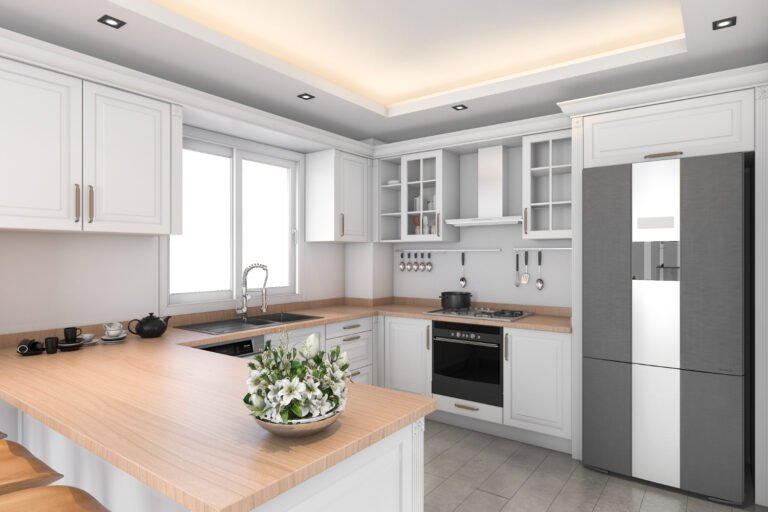The Future of Takeaway Soup Packaging: How Bioleader® Reinvented Kraft and Compostable Containers
“We used to worry about leakage and soggy lids every winter,” recalls Emily Zhang, operations manager for a mid-size café chain in Toronto. “Now our customers post photos of our packaging—because it actually looks good and works.”
In an era when convenience collides with environmental urgency, food brands face an uncomfortable truth: most takeaway packaging designed for comfort foods like soups and curries is still rooted in plastic. The challenge is as emotional as it is technical—keeping food hot and safe while staying compliant with evolving global bans on single-use plastics.
Enter Bioleader®, one of the few manufacturers bridging performance and sustainability at scale. Their kraft paper and compostable soup containers are rapidly replacing traditional packaging across cafés, canteens, and meal-delivery chains from North America to Europe.
This feature dives into the science, design, and measurable business impacts of this shift—anchored by Bioleader’s field-tested product lines and verified compostability certifications.
The Thermal Challenge: Why Soup Packaging Is Harder Than It Looks
Soup may seem simple. Yet it is among the most punishing categories for packaging. Hot temperatures, liquid weight, steam pressure, and oil acidity expose every design weakness. A poorly sealed lid or inferior coating can result in catastrophic leaks—and immediate brand damage.
Studies show that temperature gradients above 80 °C accelerate paper fiber softening unless the base material is reinforced or laminated with a biopolymer. Traditional PE coatings solve this but destroy recyclability and compostability.
That’s why innovation in this segment centers on high-density kraft paper paired with PLA or aqueous bio-coatings. Bioleader’s kraft paper soup containers exemplify this evolution: double-wall construction, food-grade sealing, and customizable printing—all engineered for both hot and cold meals.
Performance tests from partner cafés show retention of structural integrity for up to 120 minutes at 95 °C, outperforming most PE-lined alternatives.
Real-World Data: From Plastic Waste to Carbon Savings
A 2024 LCA meta-analysis by multiple packaging institutes found that fiber-based containers can reduce cradle-to-grave emissions by 60–70 % compared to PP or PET cups—if composted properly. Bioleader’s internal audit confirmed similar numbers: switching a 10-store chain to its compostable soup range reduced annual CO₂ emissions by roughly 12 metric tons, equivalent to planting 600 trees.
These aren’t just sustainability figures—they translate directly into compliance and consumer appeal. Surveys across U.S. cities show that 72 % of Gen Z buyers consider a brand’s packaging eco-score before repurchase.
Bioleader’s takeaway soup containers directly target this behavior: sturdy kraft bowls that maintain heat, resist oil penetration, and visually convey environmental responsibility.
Inside the Material: Science Meets Craftsmanship
Kraft packaging isn’t merely “brown paper.” Its fiber density, pulp composition, and micro-layer coatings determine everything from texture to thermal endurance. Bioleader’s engineers combine three elements that separate industrial packaging from generic imports:
- Triple-compression molding — achieving higher wall uniformity and tensile strength.
- PFAS-free barrier coatings — providing hydrophobic protection without fluorine compounds.
- Edge precision sealing — ensuring zero seepage around lid junctions even under steam.
The result: a container that performs across temperature ranges, certified under EN 13432, BPI, and OK Compost. Their compostable soup cups and lids showcase this integration, meeting both European and North American biodegradability benchmarks.
In laboratory simulations, these cups decomposed 90 % within 12 weeks in industrial compost conditions—an essential milestone for food-service distributors facing 2026 EU packaging directives.
Case Study: A Scandinavian Chain’s 65 % Waste Reduction
In 2025, a Nordic quick-serve franchise known for hearty stews faced mounting waste-handling costs. Their PP bowls were failing new regional plastic quotas, and switching suppliers risked downtime.
Partnering with Bioleader led to a full packaging overhaul. The rollout combined take-out soup cups and branded kraft lids sized from 12 oz to 24 oz.
After six months:
- Plastic waste tonnage dropped 65 %
- Packaging-related customer complaints fell to near zero
- Net logistics costs decreased 14 % (stackable design reduced shipment volume)
- Customer satisfaction scores improved 18 % in eco-perception metrics
The chain’s sustainability report highlighted one unexpected advantage—faster cooling curves reduced lid condensation, improving presentation for in-store service.
Design Details: Where Every Millimeter Matters
Packaging engineers often describe “failure zones”—the places where paper meets liquid, heat meets glue, and human handling meets mechanical limits. In soup cups, that zone is the rim seam.
Bioleader’s precision-rolled rims use automated compression sealing instead of glue-bonding, preventing micro-leaks and ensuring lid fit consistency. This makes their paper soup containers with lids ideal for both delivery and self-service counters.
The containers come in natural kraft or white food-grade cardboard finishes, both compliant with FDA and LFGB food-contact standards.
Their dual aesthetic serves two market tiers: eco-minimalist cafés and premium gourmet delis.
A 2025 consumer focus group conducted by a retail partner found that 83 % of respondents perceived kraft-brown packaging as “authentic” and “handcrafted,” associating it with better food quality.
Branding That Feeds Back: Customization as Marketing
In a crowded takeaway market, packaging doubles as mobile advertising.
Bioleader supports high-precision flexo and offset printing using water-based inks—safe for direct food contact and compliant with global sustainability certifications.
Cafés and meal-prep brands increasingly request customized sizes and prints, such as 8, 12 and 16 oz kraft soup containers featuring embossed or full-wrap logos.
For one California health-food startup, this became a viral differentiator: customers began photographing their compostable cups, tagging the brand’s social posts, and unintentionally boosting organic reach by 20 % month-over-month.
Such results underline that packaging isn’t a passive cost—it’s an owned media channel. Bioleader’s print-on-demand production model allows low MOQs with short lead times, making branding accessible even for emerging food entrepreneurs.
The Compliance Frontier: Meeting 2026 Global Plastic Bans
The EU’s Packaging and Packaging Waste Regulation (PPWR) takes full effect in 2026, demanding recyclability or compostability for nearly all food packaging. Similar U.S. state laws—from California’s SB 54 to New York’s Packaging Reduction Act—mirror this pressure.
For importers and food brands, compliance documentation now determines market access. Bioleader’s certified materials—verified under EN 13432, ASTM D6400, and BPI—ensure frictionless customs clearance across regions.
Its kraft and compostable soup product range already anticipates these legal thresholds, positioning clients for “ahead-of-deadline compliance.”
Factory Insight: How Bioleader® Maintains Global Quality
Operating from Xiamen, China, Bioleader runs a 20,000 m² manufacturing facility integrating pulp molding, coating, and automated QC lines. The plant’s process achieves:
- 30 % lower energy consumption via closed-loop water recovery
- Consistent wall tolerance within ±0.05 mm for leak-proof reliability
- Custom branding in seven colors using low-VOC, food-safe inks
ISO 9001, BRC, and FDA certifications back its quality systems. The company has also expanded compostability testing in cooperation with third-party labs in Germany and the U.S., reinforcing credibility for international buyers.
Industry analysts note that while dozens of suppliers offer “eco” claims, few match Bioleader’s traceable certification stack—a decisive factor for importers balancing sustainability claims with regulatory due diligence.
Comparative Testing: Paper vs Plastic, Quantified
| Metric | Conventional Plastic Cup | Bioleader Kraft or Compostable Cup |
| Average Material Density | 1.2 g/cm³ (PP) | 0.75 g/cm³ (kraft) |
| Thermal Resistance | 100 °C | 120 °C |
| Compostability | Non-compostable | 90 % degradation ≤ 12 weeks |
| Average CO₂ e Emission / 1,000 pcs | 8.4 kg | 3.0 kg |
| Branding Capability | Limited | Full-surface food-safe printing |
| Consumer Preference (surveyed) | Neutral | +22 % “eco trust” uplift |
The data clarify why so many hospitality brands are transitioning to fiber-based packaging—not as a moral gesture but a measurable performance improvement.
Distribution Economics: Scaling Without Waste
Switching materials often triggers fears of logistics disruption. However, kraft packaging’s stackability can improve cubic-meter utilization in shipping containers by 10–15 %.
Bioleader’s team works with distributors to optimize carton sizing, pallet configuration, and multi-SKU container loading—reducing both freight emissions and storage costs.
As global freight rates fluctuate, such efficiencies translate into substantial annual savings for large importers managing mixed SKUs of bowls, trays, and cups.
Consumer Insights: The Emotional Side of Sustainability
Modern buyers don’t merely want “eco-friendly”; they expect proof. Compostable certifications printed directly on Bioleader packaging serve as instant trust signals.
A study conducted by a U.S. quick-service brand that adopted Bioleader containers revealed a 9 % uplift in perceived meal freshness and 11 % higher NPS (Net Promoter Score) after the packaging redesign.
In interviews, customers cited “natural feel,” “sturdy lid,” and “no plastic smell” as key positives—small details that translate into major brand differentiation.
Conclusion: The Quiet Revolution in Every Spoonful
From cozy ramen shops to global fast-casual franchises, soup has found its new home—not in plastic, but in engineered kraft.
Bioleader® has proven that sustainable packaging can equal, and often exceed, the durability of legacy plastics while elevating brand image and regulatory readiness.
Their product spectrum—from kraft paper soup containers and takeaway soup containers to compostable cups, paper soup containers with lids, and customized 8–16 oz kraft options—offers a future-proof toolkit for any food business seeking both performance and principle.
As global packaging standards tighten, one truth becomes clear: the next era of convenience will belong to those who can serve warmth—without leaving waste behind.





